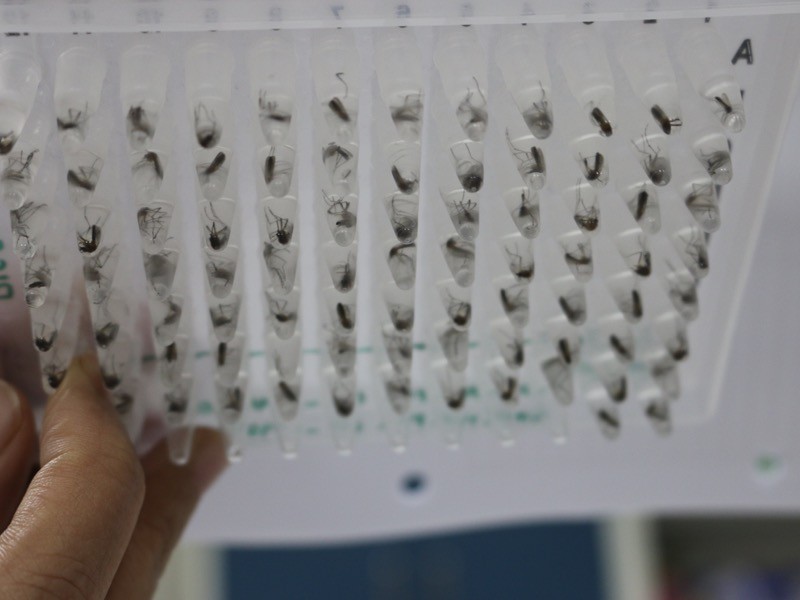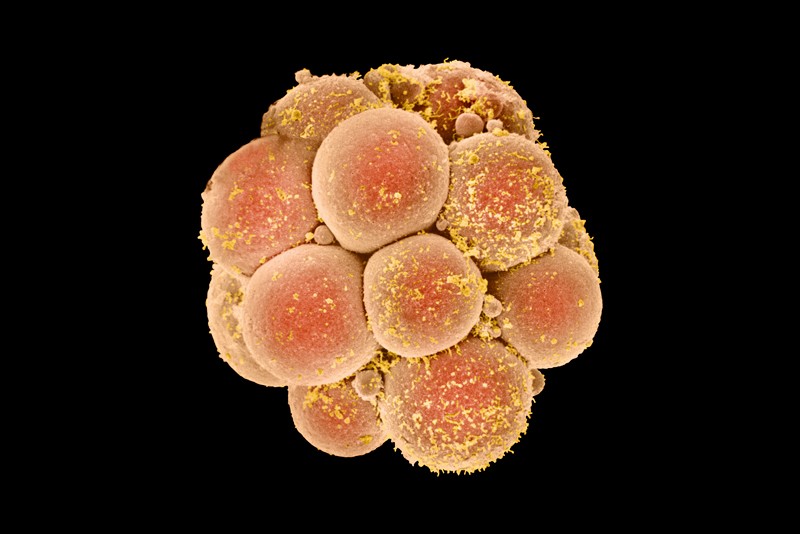Modified mosquitoes, CRISPR baby risks and a COVID-19 drug
The latest science news, in brief.

Credit: World Mosquito Program
Modifying mosquitoes could eliminate dengue
Cases of dengue fever plummeted by more than 75% in the Indonesian city of Yogyakarta after researchers released mosquitoes modified to carry Wolbachia bacteria, which stop the insects from transmitting some viruses. These results are the strongest evidence yet that the Wolbachia technique, in development since the 1990s, could rid the world of some deadly mosquito-borne diseases, researchers say.
Wolbachia-carrying mosquitoes were released over a six-month period in randomly designated parts of Yogyakarta, starting in 2016. Rates of dengue in these areas were 77% lower, as assessed during several years after release, compared with areas that did not receive the mosquitoes. The results were reported in press releases on 26 August, but the full data underlying the figures are yet to be published.
It will be important to scrutinize the full data, but “a 77% reduction is really extraordinary”, says Philip McCall, a vector biologist at the Liverpool School of Tropical Medicine, UK. “This does have huge promise.”
Around 60% of insect species carry Wolbachia pipientis, but the bacterium does not naturally infect the Aedes aegypti mosquito species that transmits dengue, Zika and numerous other viruses. Beginning in the 1990s, researchers developed laboratory populations of Wolbachia-infected A. aegypti and showed that these insects do not transmit viruses, including dengue.
The Yogyakarta trial was coordinated by the non-profit World Mosquito Program, which hopes to release Wolbachia-carrying mosquitoes in areas covering 75 million people at risk of dengue in the next 5 years, and to reach half a billion people in a decade.

Credit: Dr Yorgos Nikas/SPL
‘CRISPR babies’ still too risky, scientists warn
The use of gene editing in human embryos could one day prevent some serious genetic disorders from being passed from parents to their children. But, for now, the technique is too risky to be used in embryos destined for implantation, says a high-profile international commission. And even when the technology is mature, the commission says, its use should initially be permitted in only a narrow set of circumstances.
The recommendations, released on 3 September, come from a panel of experts convened by the US National Academy of Medicine, the US National Academy of Sciences and the UK Royal Society. The panel’s report reviewed the scientific and technical state of heritable gene editing, rather than ethical questions. It joins a wealth of reports that have argued against using gene editing in the clinic until researchers can address safety worries.
The commission was formed after Chinese biophysicist He Jiankui shocked the world in 2018 by announcing that he had edited human embryos that were then implanted in women’s wombs, in an effort to make the resulting children resistant to HIV. The work led to the birth of two children with edited genomes, but was condemned by scientists. He and two of his colleagues received prison sentences.
Steroid drugs linked to lower COVID-19 mortality
People severely ill with COVID-19 are less likely to die if they are given drugs called corticosteroids than are people who are not, according to an analysis of hospital patients on five continents.
Earlier findings showed that the steroid dexamethasone cut deaths in people with COVID-19 on ventilators. To examine the effects of steroids in general, Jonathan Sterne at the University of Bristol, UK, and his colleagues did a meta-analysis that pooled data from seven clinical trials. Each of the seven studied the use of steroids in people who were critically ill with COVID-19 (REACT Working Group J. Am. Med. Assoc. https://doi.org/d7z8; 2020). The trials included more than 1,700 people across 12 countries.
The team analysed participants’ status 28 days after they were randomly assigned to take either a steroid or a placebo. The risk of death was 32% for those who took a steroid and 40% for those who took a placebo. The authors say that steroids should be part of the standard treatment for people with severe COVID-19.
Nature 585, 165 (2020)
doi: 10.1038/d41586-020-02543-7